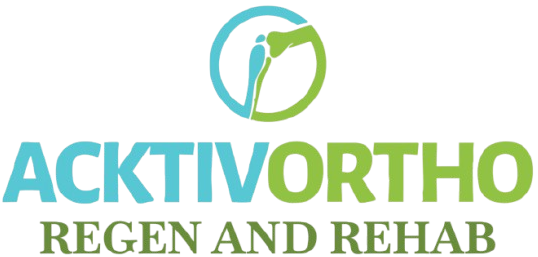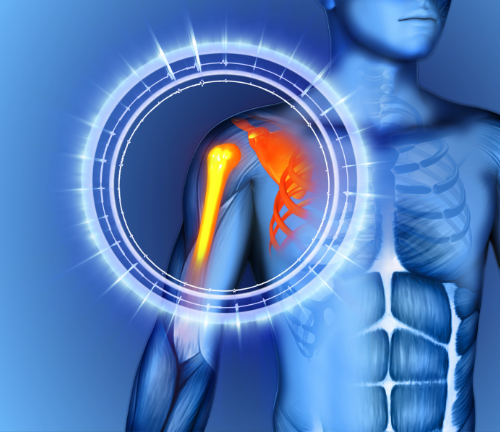Frozen Shoulder: Causes, Symptoms, Treatment, and Cost in Thane
If you’ve ever tried to lift your arm only to be stopped by a sharp pain or stiffness, you’re not alone. Many people find themselves in this situation, thinking they’ve just slept wrong or moved oddly. But when that discomfort turns into weeks or months of limited motion and pain that won’t go away, it’s more than just a temporary ache it might be frozen shoulder.
This condition can make daily tasks difficult or even impossible like putting on clothes, reaching for something on a shelf, or hugging your child. It not only affects your physical ability but can slowly chip away at your independence. The good news is, frozen shoulder is treatable. With the right diagnosis and care, you can regain your movement, reduce the pain, and get back to your normal life.
Let’s walk you through everything you need to know in simple language what frozen shoulder really is, what causes it, how it can be treated, and what treatment might cost in places like Thane.
Meet the Expert Helping Patients Move Freely Again
Dr. Saikat Jena is an orthopaedic surgeon who has spent over a decade helping people deal with shoulder pain and stiffness. He practices at Acktiv Ortho in Thane and Wockhardt Hospitals in Mira Road. He is known not just for his surgical skills, but also for the way he cares for his patients like people not just cases.
Dr. Jena is specially trained in procedures like shoulder arthroscopy and joint replacements. Every year, he performs more than 400 joint surgeries. For those suffering from frozen shoulder, he offers a range of advanced treatments, from non-surgical care to minimally invasive procedures that can bring real, lasting relief.
What is Frozen Shoulder?
Frozen shoulder, or adhesive capsulitis, is a condition where your shoulder joint becomes stiff, painful, and hard to move. Normally, your shoulder can rotate and lift with ease because the joint is surrounded by a soft capsule that allows motion. But with frozen shoulder, this capsule becomes thick, tight, and inflamed. Over time, this restricts movement and causes pain.
The condition usually goes through three stages:
- Freezing Stage: Pain starts to build up and movement becomes more difficult.
- Frozen Stage: Pain may reduce slightly, but the shoulder becomes extremely stiff.
- Thawing Stage: Slowly, your shoulder begins to move better, and stiffness goes down.
These stages can last anywhere from several months to a couple of years if left untreated.
Why It’s Important to Treat It Early
When diagnosed early, frozen shoulder is highly treatable. You can reduce the pain and prevent long-term stiffness. Many people delay treatment, thinking the pain will go away by itself. But without care, the joint can stay stiff and painful for years and may even require surgery later on.
Getting the right treatment not only speeds up your recovery but also restores function to your shoulder, so you can get back to your regular activities pain-free.
What Causes Frozen Shoulder?
Often, there isn’t one clear reason. But some common risk factors include:
- Age between 40 to 60 years
- Women are more likely to get it
- Diabetes, thyroid issues, or other hormonal imbalances
- Injuries or surgeries that limit shoulder movement
- Sedentary lifestyles where the shoulder isn’t used enough
Sometimes it even happens without any specific reason what doctors call “idiopathic.”
Who Can Get Frozen Shoulder?
This condition is more common in people who fall into certain groups:
If you’ve recently had a surgery or injury that kept your arm in one position for a long time like a fracture, stroke, or post-surgical recovery you might be at a higher risk. People with diabetes or thyroid problems are also more likely to experience it. And it tends to be more common in women, especially during hormonal changes.
Common Symptoms to Watch Out For
Frozen shoulder usually begins slowly. You might notice that your shoulder just doesn’t feel “right” tight, sore, and harder to move than before. Over time, you may face:
- Pain in and around the shoulder, especially during movement
- Difficulty raising your arm or rotating it
- Trouble sleeping due to shoulder pain
- Gradually increasing stiffness that limits your normal activities
If this sounds familiar, it’s a good idea to get it checked by an orthopaedic specialist.
How is Frozen Shoulder Treated?
Treatment depends on how far the condition has progressed. Here’s how doctors usually approach it:
Initial Diagnosis
Doctors begin by listening to your symptoms and doing a physical check of your shoulder. They may ask for X-rays or MRI scans to make sure there are no other problems like arthritis or rotator cuff tears.
Step 1: Conservative Treatment
In early stages, frozen shoulder often responds well to medications and physiotherapy. Anti-inflammatory drugs and pain relievers can reduce discomfort, while physical therapy helps loosen the stiff joint.
Step 2: Injections
If pain is moderate to severe or therapy isn’t helping, your doctor might recommend steroid or saline injections to reduce inflammation inside the joint capsule.
Step 3: Arthroscopic Surgery
In more advanced cases where stiffness doesn’t go away with other treatments, a simple keyhole (arthroscopic) surgery may be done. It involves removing the tight tissue inside the shoulder to restore mobility.
Step 4: Rehabilitation
Recovery doesn’t stop after the treatment. A custom physiotherapy plan helps you regain strength and maintain the improved range of motion.
Is Frozen Shoulder Treatment Effective?
Yes, very much so. Most people see significant improvement with simple exercises and non-surgical care. A small percentage of patients with very limited motion or long-term symptoms may need surgery, which also has a high success rate when done by experienced professionals.
At Acktiv Ortho in Thane, most patients resume near-normal function within 3 to 6 months with proper care.
Are There Any Risks Involved?
The risks are generally low, especially for non-surgical treatments like medicines and physiotherapy. Injections may sometimes cause a bit of soreness. If you need surgery, there are small chances of infection or stiffness returning but these are rare, especially when you follow the rehab plan closely.
How is It Different from Other Shoulder Problems?
People often confuse frozen shoulder with rotator cuff tears or arthritis. But each has distinct signs. Frozen shoulder is more about stiffness and gradually increasing pain, while rotator cuff problems often cause pain during specific arm movements. Getting a proper diagnosis is key to knowing what treatment will work best for you.
What Does the Treatment Cost in Thane?
Costs will vary depending on the stage and type of treatment you need:
- Consultation and Diagnostic Scans: ₹1,000 to ₹2,500
- Physiotherapy Sessions: ₹500 to ₹1,000 per session
- Steroid Injections: ₹3,000 to ₹7,000
- Arthroscopic Shoulder Surgery: ₹45,000 to ₹90,000
Many private health insurance policies cover part or all of the treatment, especially for surgery.
Is Hospital Stay Needed?
Not usually. Most treatments are done on an outpatient basis, meaning you don’t need to stay overnight. Even surgical procedures for frozen shoulder are usually day-care surgeries. You’ll go home the same day or the next.
What Can You Do at Home?
Before your doctor’s visit or while undergoing treatment, you can try some light shoulder stretches and use heat packs to ease the pain. And after you’re treated, following your physiotherapy schedule is one of the most important things you can do to recover fully. Staying motivated and moving your shoulder in the right way will help you avoid future problems too.
Why Choose Dr. Saikat Jena?
Dr. Jena combines the best of both worlds advanced medical knowledge and down-to-earth care. With over 400 joint procedures every year and training from countries like the UK, Germany, and Portugal, he brings world-class skills to local people right here in Thane.
At Acktiv Ortho and Wockhardt Hospitals, patients receive personalized care in a friendly, modern environment whether they need simple exercises or advanced surgery.
Time to Move Freely Again
You don’t have to live with pain or stiffness forever. Frozen shoulder can be a frustrating condition, but with the right help, healing is entirely possible. Whether your symptoms just began or have been troubling you for months, getting expert care is the first step toward recovery.
If you’ve been putting off that doctor visit, now might be the time to act your shoulder, and your future self, will thank you.
What to Do Next
If you’re ready to talk to a specialist who listens, understands, and treats with real care, schedule a consultation with Dr. Saikat Jena today.
Call the clinic, ask questions, and take that first step toward getting your movement and life back.
Common Questions About Frozen Shoulder
Q1. Can frozen shoulder heal on its own?
In some cases, it gets better slowly over 1 to 3 years. But you might be left with reduced shoulder movement. Treatment speeds up recovery and gives you better results.
Q2. What’s the difference between frozen shoulder and shoulder arthritis?
Frozen shoulder mainly causes stiffness and gradual pain, while arthritis leads to joint damage over time and may hurt even when you’re resting.
Q3. Do I always need surgery?
Not at all. Most people recover with non-surgical treatments like physiotherapy and injections. Surgery is only needed in severe or stubborn cases.
Q4. How long does it take to fully recover?
With early treatment, recovery takes around 3 to 6 months. If the condition is more advanced, it may take longer.
Q5. What should I avoid during treatment?
Avoid sudden, heavy shoulder movements. Don’t skip your physiotherapy. And don’t wait too long before seeking medical help if it gets worse.
Q6. Is it connected to diabetes?
Yes, people with diabetes are more prone to frozen shoulder. They may also take a bit longer to recover, but they can still recover fully with proper care.
Q7. Can I go to work while getting treatment?
In most cases, yes. Unless you do heavy manual work, frozen shoulder shouldn’t keep you away from your job.
Q8. What happens after surgery?
Recovery is usually quick with arthroscopic surgery. But physiotherapy is vital post-surgery to keep the joint mobile and prevent future stiffness.
Q9. Will I get frozen shoulder again?
It’s rare for the same shoulder to have it again once fully treated. Keeping your shoulder active and following rehab helps prevent recurrence.

